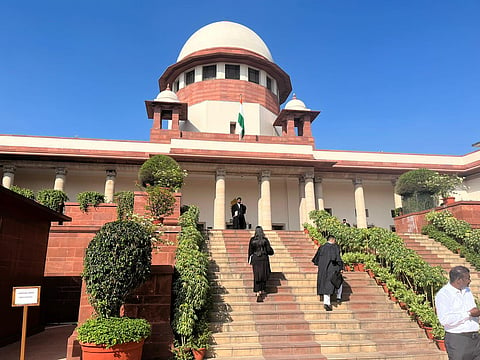

NEW DELHI: Terming the issue of permitting a candidate for contesting for more than one seat as a “matter of legislative policy,” the SC on Thursday binned a plea filed by BJP leader Ashwini Upadhyay challenging the same.
A bench of CJI DY Chandrachud, Justices JB Pardiwala and PS Narasimha said, “Permitting a candidate for contesting for more than one seat is a matter of legislative policy since ultimately its parliament's will on whether the political democracy is furthered by granting such choice.”
The court further said, “Candidates may contest from different seats due to a variety of reasons. Whether this would further the course of democracy is up to parliament to decide. Whether the law commission's suggestions are to be converted to the legislative mandate is a matter of parliamentary sovereignty. The court cannot strike down the provision as unconstitutional.”
The plea which challenged section 33(7) of the Representation of People’s Act, 1956 argued that the same was unreasonable and arbitrary for creating an extra burden on the public exchequer. The plea stated that by-elections will invariably be because candidates have to give up one seat in case they win from both seats.
Referring to the recommendations made by the Law Commission of India for doing away with the provision, Senior Advocate Gopal Sankaranarayanan appearing for BJP leader, told the bench that conducting by-elections in case of the candidate being elected from one constituency would result in the imposition of a financial burden on the public exchequer. He also added that citizens vote for a candidate after knowing about his antecedents etc and a person having the right to know would be deprived of that right.